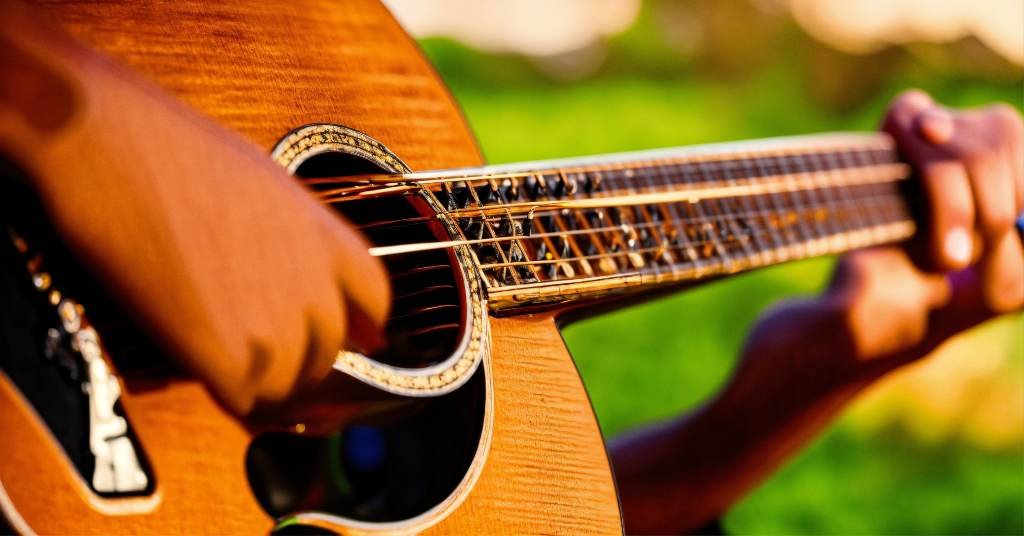Bass players have different preferences when it comes to reading music. Some might find rigorous sheet music study unnecessary if their goal is to play for fun. Aspiring bassists face unique challenges that require patience, dedication, and strategic approaches. In this article, we will explore common obstacles in learning bass tabs, provide effective strategies to overcome them, and master the art of bass playing.
The purpose of this article is to provide guidance and practical strategies for overcoming common challenges faced by beginner bass players when learning to read and play bass tabs.
When reading this article, people should look for the following:
- Understanding the various challenges that beginners encounter, such as developing finger strength and agility, grasping rhythmic notations, maintaining timing and tempo, navigating complex rhythmic patterns, developing ear training and musical interpretation skills, maintaining patience and consistency, and finding suitable learning resources.
- Practical strategies and techniques to address each of these challenges, including targeted exercises, practice methods, utilization of tools like metronomes and online resources, and a mindset focused on gradual improvement.
- Encouragement and motivation to persevere through the learning process, acknowledging that frustration and slow progress are temporary obstacles on the journey to becoming a skilled bassist.
- Insights into the importance of ear training, musical interpretation, and developing a personal touch when playing basslines rather than solely relying on tabs.
- Recommendations for finding reliable learning resources, such as reputable online platforms and instructional books, and joining online communities for advice and support.
- An overall appreciation for the rewarding nature of mastering the bass guitar, despite the challenges involved, and the creative expression it can enable.
Finger Strength and Dexterity

Challenge:
Many beginners need help developing the finger strength and skill required to navigate the fretboard efficiently.
Strategy:
- 1. Implement targeted exercises to build finger strength.
- 2. Incorporate chromatic exercises, finger presses, and fretting drills into your practice routine.
- 3. Gradually increase the complexity of these exercises to challenge and improve your finger dexterity over time.
Understanding Rhythmic Notations
Challenge:
Understanding the rhythmic notations on a guitar tab can be difficult, especially for beginners new to reading music. According to Adorama, many great guitarists have successfully managed their careers without learning to read standard notation. This is because accurately depicting rhythms can be challenging. If a composer wishes to provide instructions for dynamics (how loud or soft a note is), they will likely have to rely on standard notation symbols and instructions.
Strategy:
- 1. Practice with a metronome to improve your sense of timing.
- 2. Break down rhythms into smaller segments, focusing on each note’s duration.
- 3. Start with simple basslines and gradually progress to more complex patterns.
- 4. Utilize online resources or apps that provide rhythmic exercises for further practice.
Syncing with Timing and Tempo
Challenge:
Maintaining consistent timing and syncing with the tempo of a song can be tricky, leading to a need for groove.
Strategy:
- 1. Play along with the original recordings of songs to develop a sense of timing.
- 2. Use a metronome to practice playing at various tempos, gradually increasing the speed.
- 3. Break down basslines into smaller sections, ensuring each segment is mastered before moving on to the next.
Navigating Complex Rhythmic Patterns
Challenge:
Some bass tabs feature intricate rhythmic patterns that can be challenging to execute, especially for beginners.
Strategy:
- 1. Start by breaking down complex patterns into smaller, more manageable segments.
- 2. Practice each section slowly and gradually increase the tempo as you become more comfortable.
- 3. Focus on one hand at a time (fretting hand or plucking hand) to enhance coordination.
Ear Training and Musical Interpretation

Challenge:
Translating bass tabs into a musical expression can be daunting, especially for those new to playing by ear.
Strategy:
- 1. Actively listen to the original recordings of songs to understand the nuances and dynamics.
- 2. Use the bass tabs as a guide, but trust your ear for phrasing and expression.
- 3. Experiment with variations and embellishments to add your personal touch to the bassline.
Patience and Consistency
Challenge:
Frustration and impatience can set in when slow progress hinders the learning process.
Strategy:
Understand that learning to play the bass is a gradual journey. Consistent and focused practice is key. Break your practice sessions into manageable chunks, allowing for steady improvement.
Utilizing Learning Resources
Challenge:
Finding suitable learning resources, including accurate bass tabs, can be challenging for beginners.
Strategy:
- 1. Explore reputable online platforms, bass tutorial websites, and community forums.
- 2. Invest in instructional books and courses by experienced bassists.
- 3. Join online communities to seek advice, share experiences, and discover valuable resources recommended by fellow bass enthusiasts.
Conclusion
Learning to play bass guitar requires dedication, patience, and strategic practice. While beginners will inevitably face obstacles like building finger dexterity, grasping rhythmic nuances, and interpreting musical expression, these challenges are surmountable with the right mindset and techniques. By breaking down difficult basslines, utilizing instructional resources, and recording gradual improvements through consistent practice, aspiring bassists can establish solid musical foundations. With time and perseverance, the intricate fretboard will unfold, and complex rhythms will click into place. Any frustration encountered along the journey is temporary and an essential part of the learning curve. If new bassists meet each challenge as an opportunity for growth, they will surely transform into skilled and versatile musicians. The rewards of mastering such a dynamic instrument outweigh the struggles faced. So stay determined, celebrate small wins, and let your passion for bass playing guide you through every obstacle into new realms of creative expression.
